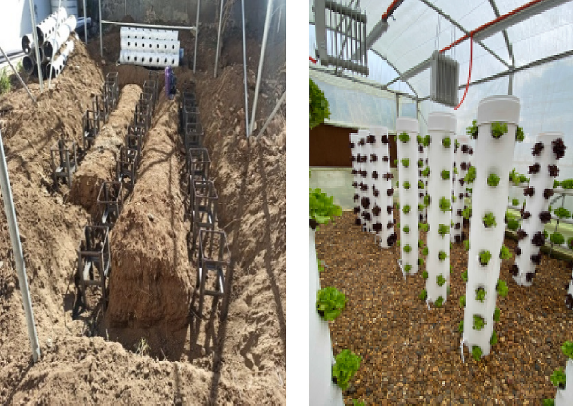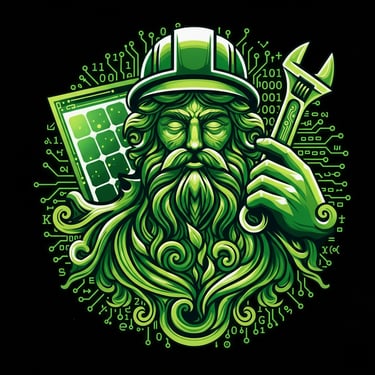Revolutionizing Agriculture: Smart Hydroponic and Aeroponic Greenhouse Technology in Egypt using IoT Technology
ENGINEERINGIOTSUSTAINABLE AGRICULTURE


Introduction
The world's population is expanding at an unparalleled rate, and so is the demand for food consumption. However, conventional farming practices are facing crucial obstacles like: water shortage, global warming, and scarcity of land resources. To tackle this issue, scientists and researchers resort to technology to innovate agriculture and guarantee sustainable food production. One such innovation is the implementation of a new smart hydroponic and aeroponic greenhouse system based on Internet of Things (IoT) technology at the National Water Research Center in Egypt. In this blog post, we will discuss how this innovative approach positively changed traditional farming practices and welcomed sustainable crop production and water management.
Key Objectives of the Smart Greenhouse System
According to a study published by Sadek et al in the Elsevier journal which deals with the development of a smart hydroponic and aeroponic greenhouse system through advanced IoT technology, the main outcome of this system is to restructure agricultural practices and optimize the cultivation environment to result in an efficient and effective food production process. Through the use of IoT sensors, actuators, and processors, the system plans to achieve the following objectives:
Monitor and maintain weather conditions inside the greenhouse to be optimal for certain plant species and seasonal necessities.
Measure factors like temperature, humidity, luminous intensity, and total dissolved solids to guarantee optimal plant growing conditions.
Mechanize the monitoring and control of environmental variables to fully allocate water and energy use efficiency while minimizing the reliance of pesticides and fertilizers.
With these objectives being met, the resulted outcome is a smart greenhouse system that promotes efficient and effective food production.


Constructed aeroponic System (Sadek et al., 2024)
IoT Technology for Water Conservation and Efficient Plant Growth
In terms of water preservation, the application of IoT technology in the smart greenhouse system plays a crucial role in ensuring water preservation and plant growth through minimal resources. Through the use of IoT-based sensors and actuators, the structure will be able to:
Dynamically track and regulate environmental factors in real time to optimize water usage and reduce wastage overhead.
Pave the way for an accurate process of nutrient delivery to plants, guaranteeing optimal growth while reducing water and fertilizer consumption.
Present real-time data and key decision-making to farmers, allowing them to confidently make informed decisions that lead to sustainable water management and enhanced crop productivity.
Key Findings and Implications of the Research
In terms of the benefits of this innovative solution, the study conducted at the National Water Research Center in Egypt has lead to significant results, predictions, and suggestions for the future of agriculture and water preservation. Some of these key findings are:
Enhanced efficiency and efficacy for water and energy usage, with potential savings of resources of up to 80% compared to old-fashioned agricultural practices.
Enhanced productivity per unit area, leading to higher crop outputs at a shorter time compared to conventional agricultural greenhouses.
Decrease in human labor requirements, fertilizer and pesticide usage, leading to sustainable and green (eco-friendly) farming practices.


Developed Website by authors (Sadek et al., 2024)
Conclusion
In conclusion, the use of smart hydroponic and aeroponic greenhouse technology in Egypt represents a significant milestone in the mission for sustainable agriculture and water preservation in not just Egypt, but for other countries embracing eco-friendly practices. Through IoT technology, this revolutionary approach promises to transform traditional farming methods and guarantee the security of food production in the face of global challenges. Looking into the future, the continued development and implementation of smart agricultural technologies will play a significant role in shaping a more sustainable, reliable, and eco-friendly food production system for generations to come.
Subscribe to our newsletter


